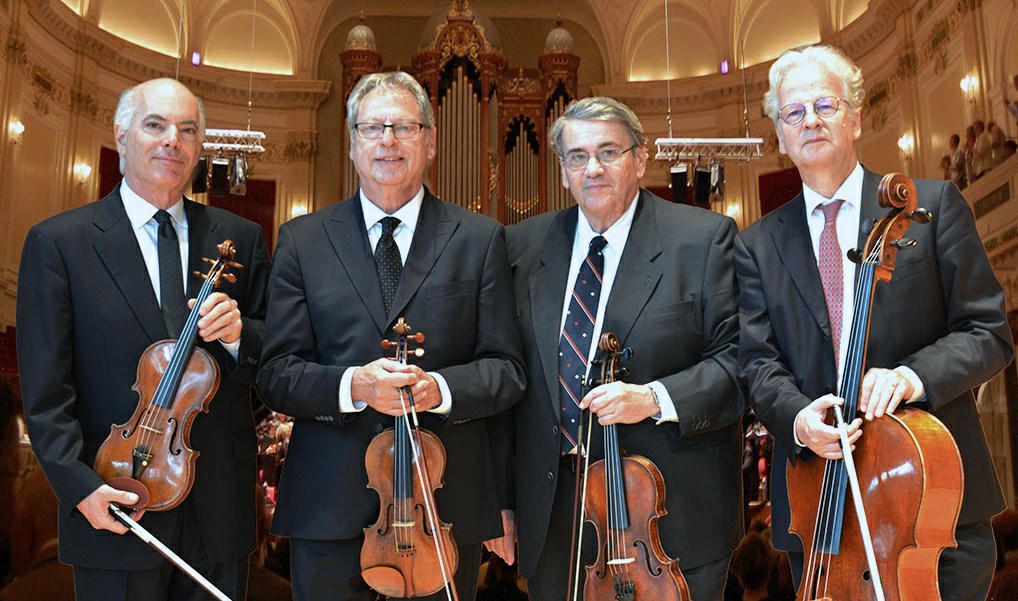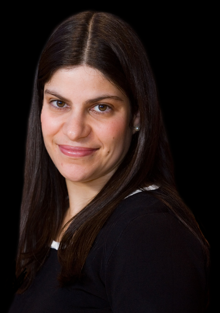Fine Arts Quartet Returns
Community brings quartet back to perform works by Beethoven, Shostakovich and Dvořák.
The Fine Arts Quartet returns to the University of Wisconsin-Milwaukee Zelazo Center this Sunday evening to begin a week-long Summer Festival. Having ended their 55-year residency at the University in January, the June series is community-sponsored — the result of fund-raising by the Friends of the Fine Arts Quartet in partnership with Saint John’s On The Lake and the UW-Milwaukee Peck School of the Arts.
The Quartet now includes two members who had frequently been guests of the Fine Arts Quartet when a quintet or sextet was required. The current membership – violinists Ralph Evans and Efim Boico, violist Gil Sharon and cellist Niklas Schmidt. Sharon is founder and Artistic Director of the Amati Ensemble in Maastricht, Holland. Schmidt teaches at Hochschule für Musik und Theater in Hamburg, Germany and was for many years a member of the distinguished Trio Fontenay. Among other visits, Sharon and Schmidt shared the stage with the Fine Arts Quartet in a Milwaukee concert in 2013. The four have begun a schedule of concerts in Europe and the United States, booked well into 2019.
Pianist Gisele Nacif Witkowski will be a guest of the Quartet for this concert.
The ambitious program will be an emotional journey.
Ludwig van Beethoven‘s first quartet String Quartet No. 1 in F major, Op. 18, No. 1 in part represents an early tone poem, marking the start of a romantic approach to music that was to dominate 19th century Western classical music. Beethoven wrote a romantic, dark and melodic adagio that was inspired by the tomb scene in Romeo and Juliet. That movement is one of the most beautiful of his extraordinary output. The rest of the work features motivic (more rhythmic than tuneful) development and complex counterpoint that demonstrates his creativity even early in his career.
Dmitri Shostakovich, already known for music that could touch the soul, wrote his String Quartet No. 11 in F minor, Op. 122 (1966) as an elegy to a friend, Vasily Shirinsky, second violinist in the Beethoven Quartet. For decades, the Beethoven Quartet had offered the premiere performances of Shostakovich’s string quartets. Shostakovich wrote his 11th quartet as a moving tribute. The seven movement work proceeds through stages of grief without a break. Isolation, disorganization, anger, frustration and cynicism are reflected in markedly different episodes of less than two minutes each. An elegaic melody honors Shirinsky — ending with a solo statement by the second violin. The work closes by resolving the tension introduced in the fragmentary opening movements before fading away in a sustained scream — a high C on the first violin.
Perhaps Shostakovich, in failing health, was reflecting on his own mortality as well.
Antonín Dvořák‘s piano quintet, Piano Quintet No. 2 in A major, Op. 81, B. 155, has been acknowledged among the greatest of the genre. Attractive melodies and energetic dance rhythms inspired by Czech folk traditions have come to seem universal to music lovers attracted to the Dvořák imagination. His use of Czech dance brings fresh energy to the quartet. A central movement features a Dumka, a traditional form that alternates lyrical slow morose passages with devil-may-care exuberant dance breaks — reflecting an outlook on life as much as a musical format. Driven by the piano, the quintet reaches a dramatic, high-spirited conclusion —merging fugal structures with rustic dance.
The June 10, Sunday evening concert starts at 7:30 p.m. at the Zelazo Center at 2419 E. Kenwood Blvd. A pre-talk will start at 6:30 p.m. Pianist Fabio Witkowski, the other half of the Witkowski Piano Duo, will participate in the pre-talk to discuss the Dvořák piano quintet.
In a break from past procedures, the concert is free and without assigned seating — no ticketing. Patrons merely need to show up at the Zelazo Center. The concert hall will open at about 7:10 p.m.
This concert is the first of four this next week. The Fine Arts Quartet will return to the Zelazo Center on Sunday, June 17 at 7:30 p.m. Two limited-seating concerts at Saint John’s On The Lake (June 13) and the Jewish Museum of Milwaukee (June 18) required reservations. Reservations are now closed in each case.
More information, including notes and online listening recommendations may be found at FOFAQ.org
Preview
-
A Sacred Choir, 70 Voices Strong
 Dec 14th, 2025 by Martha Brown
Dec 14th, 2025 by Martha Brown
-
Prometheus Trio Goes Bohemian
 Dec 3rd, 2025 by Martha Brown
Dec 3rd, 2025 by Martha Brown
-
Present Music Offers New Choral Works
 Nov 20th, 2025 by Michael Barndt
Nov 20th, 2025 by Michael Barndt























It’s great to see a long-revered Milwaukee institution soldiering onward. I no longer live in Milwaukee but will be cheering from afar.